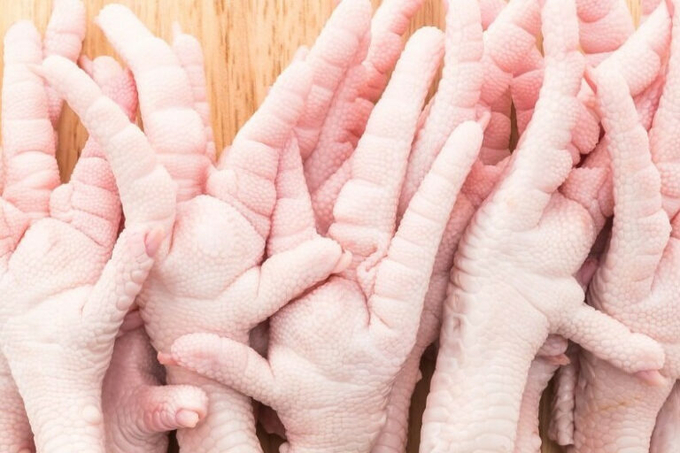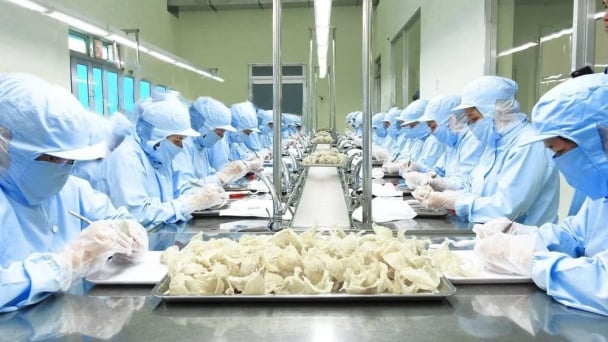May 16, 2025 | 22:35 GMT +7
May 16, 2025 | 22:35 GMT +7
Hotline: 0913.378.918
May 16, 2025 | 22:35 GMT +7
Hotline: 0913.378.918

To a large extent, Russia’s exports to China are comprised of poultry feet. Photo: Mrsiraphol (Freepik).
This surge was largely fueled by the expanding sales to key markets like China and Saudi Arabia, as Sergey Lakhtyukhov, the general director of the Russian National Union of Poultry Farmers, highlighted during an industry conference in Moscow.
Exports are a key driver of Russian chicken meat production growth, though the potential of the domestic market has yet to be exhausted. Last year, Russian poultry production climbed by 2.1% or 140,000 tonnes, Lakhtyukhov said.
He revealed that Russia manufactured 6.677 million tonnes of poultry in live weight, against 6.537 million tonnes in the previous year.
The top poultry manufacturers in Russia, including GAP Resource, Cherkizovo, and Prioskolie, played a significant role in the industry’s growth. In 2024, GAP Resource led the pack with 1.07 million tonnes manufactured in 2024, closely followed by Cherkizovo (1.051 million tonnes) and Prioskolie (453,000 tonnes).
Exports to China shot up by 23%, Saudi Arabia by 60%, and Kazakhstan by 30% compared with the previous year, Lakhtyukhov added.
To a large extent, exports to China are comprised of poultry feet. If this by-product is not taken into account, Saudi Arabia is marginally close to overtaking China as the largest importer of Russian poultry, Lakhtyukhov revealed.
Rising domestic consumption
In 2024, Russia set a new record for meat consumption, reaching 83 kg per person. Poultry and pork consumption were the key drivers of this dynamic, with the average Russian citizen consuming around 36 kg of poultry meat last year.
Meat consumption in Russia is projected to slowly rise during the next 5 years, he added. At the same time, some analysts believe that the Russian poultry market surplus is equal to 5-7% of the supply.
“The fact that we are net exporters is certainly positive. Because if this, meat remained on the market of our country. It would put additional pressure on the economic indicators of our enterprises,” Lakhtyukhov said.
An uptick in imports
Despite this, Russia also experienced a surge in poultry imports in 2024, Lakhtyukhov said. According to preliminary results of 2024, imports jumped by nearly a third to 300,000 tonnes. To a degree, the rise in deliveries is attributed to the government’s decision to approve a 140,000 tonnes duty-free quota on poultry imports.
The measure was called to stabilise the domestic market during the period of turbulence, Lakhtyukhov explained, adding that the measure was not extended to 2025, meaning that deliveries will likely fall this year.
(Poultryworld)

(VAN) Japan's efforts to lower the price of rice through the release of its stockpile may finally be making some progress, albeit at a snail's pace.

(VAN) U.S. tariffs are not only a 'shock', but also an opportunity for Vietnamese businesses to renew their mindset toward comprehensive development.

(VAN) As Bac Giang lychee enters the harvest season, Minister Do Duc Duy expects that the fruit will contribute greatly to agricultural exports due to standardized production and deep processing.

(VAN) Consumers have shown a preference for free-range eggs, but those farming systems are more vulnerable to biosecurity risks like bird flu.
/2025/05/09/5701-1-184335_301.jpg)
(VAN) Vietnam’s eel exports nearly doubled thanks to a mud-free farming model, opening up new prospects while still facing numerous barriers related to international standards.

(VAN) Minister Do Duc Duy warned that if production is not professionalized and supply chains are not transparent, the U.S. market could become a growth bottleneck.

(VAN) Delegating surveillance responsibilities to local authorities is a cost-saving and efficiency-boosting measure that removes a key bottleneck for enterprises, according to Director General Duong Tat Thang.